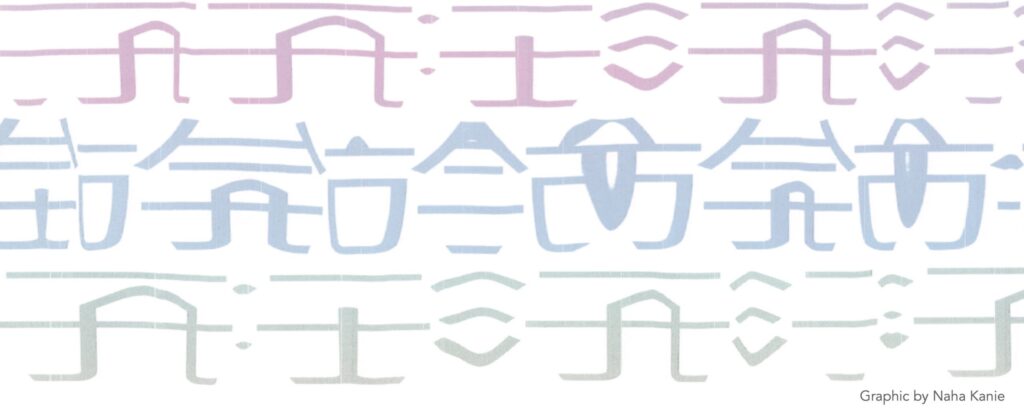あそぶものたち・すさぶものたち
プログラム・ステートメント

歴史家のヨハン・ホイジンガが、高度な文化は自由な精神に基づく “遊び” から生じたことを論じた「ホモ・ルーデンス」を著したのは1938年。ホイジンガは、効率ばかりを追い求める “労働” が人間の根源的な “遊び” を失わせると指摘しました。
時は流れて2023年。効率性や生産性に疲れてしまった現代は、遊びに回帰する好機かもしれません。しかし遊びを単純に労働の対局に置くのはナンセンスです。「遊びがある」あるいは「遊び心がある」という言葉は肯定的に使われていますが、それもどこか余剰的な響きを持っています。
「あそび」という言葉の原義を辿ってみると、それは「行為」ではなく、「在り様」を指す言葉だったことが浮かび上がってきます。そしてそれは、広く世界共通であり、生命・非生命の区別もありません。
8世紀~11世紀の文献に残っている古高ドイツ語で「あそび」を意味する <spilan> は、 「かろやかで、あてどなく揺れ動く運動、それ自身の内部で、ゆきつ戻りつする運動」を指しています。
アングロ・サクソン語の <plega, plegan> は「すばやい運動・身振り、手で掴むこと、手で叩くこと、楽器をつま弾くこと」を広く意味する言葉です。
漢語においては、<遊> の古い漢字として <汓> <斿> があり、<汓> は「風によって生じる水面のさざなみ」、<斿> は「旗や吹き流しが風にはためく様」を指しています。これらの字の第一義は、「波の流れにまかせてゆくこと、沈まないで、ゆらゆらと浮かび漂うこと」とされています。
また、<遊>は別の読み方をすれば<すさび>となり、<荒び>と書くこともあります。これは「自ずとわいてくる勢いのおもむくまま、興のおもむくままに、ふるまうこと」。
ホイジンガが指摘したように、私たちを取り巻く世界にも、私たち自身の内にも、<あそび> は根元的なものとして存在します。しかし、現代社会では、<あそぶ/すさぶ> ことは難しくなっていると感じます。それはあらゆるものが情報化されているせいかもしれないし、あらゆる種類のサービスがあるせいかもしれないし、あらゆる場所で前例や制度が出来てしまっているからかもしれません。
自らの感覚を使い、ゆきつ戻りつしながら、流れの中で沈むことなく、<あそぶ> こと。
沸き起こるエネルギーやリズムを感じて、興のおもむくままに、<すさぶ> こと。
そんなことが必要なのか? なぜあそぶのか? そういういかにも合理主義的な問いは、ひとまず横に置いておきます。その意味するところや、そこから何を目指すのかは、あそんでみなければ、分からないはず。
texts by Sachi Nakajima, Gallery Pictor
(参考文献:「遊びの現象学」⻄村清和 著、勁草書房)
Go back and forth, Proceed at your pleasure
It was in 1938 that historian Johan Huizinga wrote Homo Ludens, which argued that advanced culture arose from ‘play’ based on a free spirit. Huizinga pointed out that the pursuit of efficiency in ‘labor’ leads to the loss of the fundamental human ‘play’.
The year is 2023. Today, tired of efficiency and productivity, it may be an opportune time to return to play. However, it is nonsense to simply place play as the opposite of labor. The terms “playful” or “have fun” are used positively, but they also have a somewhat redundant ring to them.
Tracing back the original meaning of the word ‘play,’ it emerges that it was not an action but a way of being. Also, it is widely shared throughout the world and makes no distinction between life and non-life.
<Spilan>, the Old High German word in documents from the 8th to 11th centuries, is a word root of ‘play’ and refers to “a slow, aimless, oscillating movement, a to-and-fro movement within itself”.
The Anglo-Saxon word <plega, plegan> is a broad term meaning “quick movement or gesture, grasping with the hand, clapping with the hand, or plucking an instrument.
In Chinese, <汓> and <斿> are the older Chinese characters for <遊>. <汓> referring to “the rippling of the water surface caused by the wind” and <斿> to “the way a flag or streamer flaps in the wind. The first meaning of these characters is “to go with the flow of the waves, to float and drift without sinking”.
The Chinese character <遊> is pronounced <asobu> in Japanese, and also has a different way of pronunciation (for the same kanji character), <susabu>, which means “to behave according to your own spontaneous impetus or your own excitement”.
As Huizinga pointed out, ‘play’ is fundamental to the world around us and within ourselves. However, we may feel that in today’s society, it is becoming more difficult to ‘play’ or <asobu/susabu>. This may be due to the fact that everything has become information-oriented, that there are all kinds of services, or that precedents and systems have been established everywhere.
Use your senses, to go back and forth, and to ‘play’ (asobu) without sinking in the current.
Feel the energy and rhythm that arises, and to ‘play’ (susabu) following your heart’s desire.
Is that really necessary? Why do we play?
Let’s put those rationalistic questions aside for the moment. Unless you play, you will never know what it means and what we aim to achieve from it.
texts by Sachi Nakajima, Gallery Pictor
(Reference: “Phenomenology of Play” by Kiyokazu Shinmura, Keiso Shobo)
